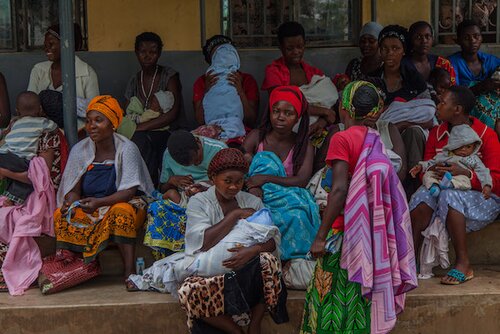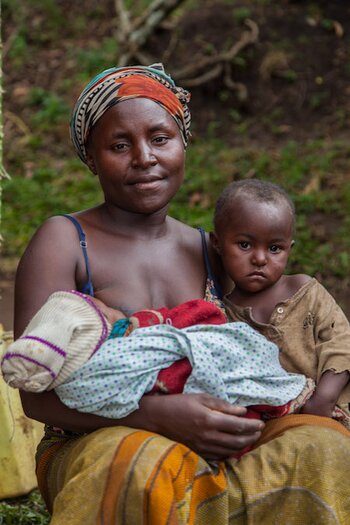UHC2030 is excited to welcome several new and distinguished...
10 May 2022
As part of Universal Health Coverage (UHC) commitment monitoring, we want to tell the real stories of UHC as experienced by people across the globe. In this story, Kabugho talks about her family planning experience in Uganda.

My name is Kabugho, I am 21 years old and a mother of three beautiful young children. I come from the rural district of Kasese in Uganda, on the border with the Democratic Republic of Congo. I support my community as a Peer Educator with a local NGO called “Innovations for Development”. I proudly talk to young people about not getting pregnant at early in age like I did. I lost the chance to have an education, but I want my two daughters to have a better life than the one I am having right now.
I wish I had never gotten pregnant at 15. Pregnancy turned my life upside down, but I know I will make it. After getting pregnant, my parents disowned me and left me with no choice but to live with the man who got me pregnant. I didn't know anything about family planning at the time and while living with him he didn't even want me to use family planning. I ended up with three children and no marriage, and now I am back at my parents’ village.
If my health care worker had supported me with an IUD, I would not have had three children. Our health workers can be judgemental and they don't listen to young people asking about family planning methods. I wish that [accessibility of family planning] could change and at least every adolescent could have the means and methods to avoid getting pregnant. Pregnancy at an early age is one of the worst things that can happen to a girl, especially with an unsupportive partner. But now that I am a Peer Educator, I have been empowered to talk about family planning. I feel that I am now useful to other people, using my example for young people to learn not to suffer like I did. I pray that Innovations for Development (I4DEV) continues to get support to help young girls.
“I wish that [accessibility of family planning] could change and at least every adolescent have the means and methods to prevent getting pregnant.”
I am sharing a photo of the health centre where we get services in our village. The health centre is old, not clean, and over-crowded with people. There is no proper waiting room or clean toilet. The health workers have been rude and keep us waiting for long to get the necessary care. You can spend the whole day just waiting for your prescribed medicine after getting examined. My biggest issue is that they must ensure the availability of malaria drugs, especially for our children. Malaria is our biggest health problem.

The second picture I am sharing (above) shows the journey I have to make every time to get my children to the health centre. Walking for three hours in the sun with a child who has a fever is extremely difficult. My dream is to learn baking and tailoring so that I can earn more money than what I now make from my father's garden. I do not like farming and gardening, it is very challenging and demanding, and it does not allow us to earn enough. I dream of a good job and a home of my own for my children.
Note: This story may have been edited for clarity and shortened for fit on the UHC2030 webpage.
Category: Civil society and communities
